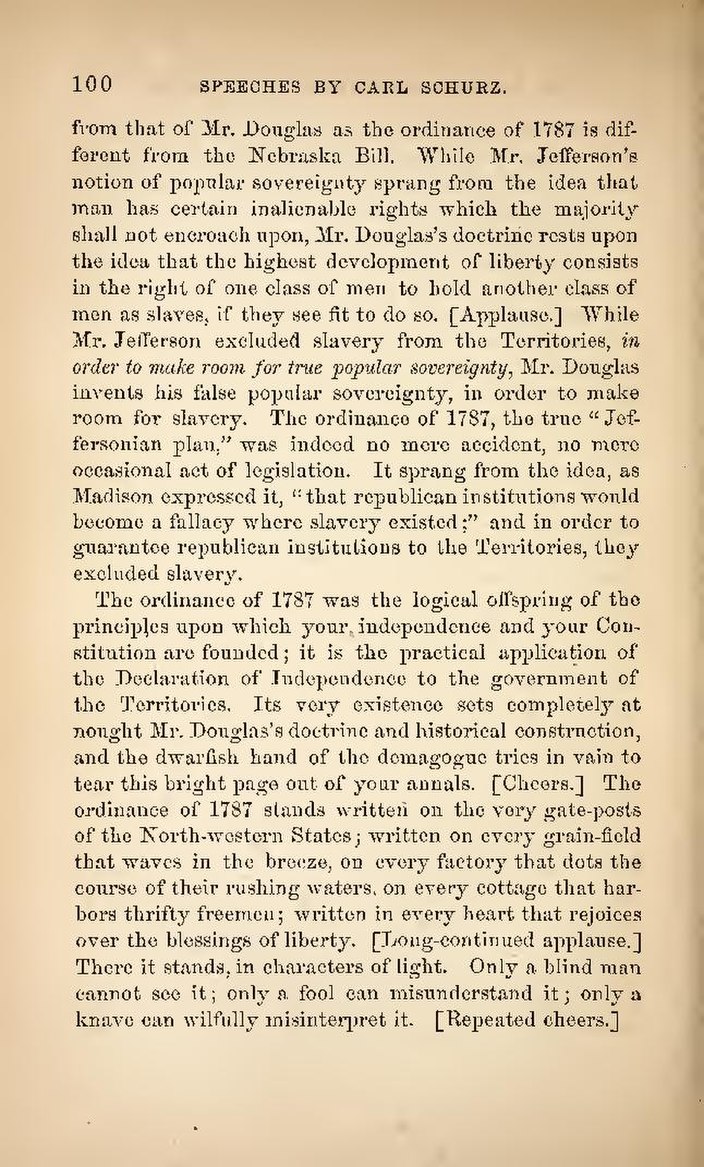from that of Mr. Douglas as the ordinance of 1787 is different from the Nebraska bill. While Jefferson's notion of popular sovereignty sprang from the idea that man has certain inalienable rights which the majority shall not encroach upon, Mr. Douglas's doctrine rests upon the idea that the highest development of liberty consists in the right of one class of men to hold another class of men as slaves, if they see fit to do so. [Applause.] While Mr. Jefferson excluded slavery from the Territories, in order to make room for true popular sovereignty, Mr. Douglas invents his false popular sovereignty in order to make room for slavery. The ordinance of 1787, the true “Jeffersonian plan,” was indeed no mere accident, no mere occasional act of legislation. It sprang from the idea, as Madison expressed it, “that republican institutions would become a fallacy where slavery existed;” and in order to guarantee republican institutions to the Territories, they excluded slavery.
The ordinance of 1787 was the logical offspring of the principles upon which your independence and your Constitution are founded; it is the practical application of the Declaration of Independence to the government of the Territories. Its very existence sets completely at nought Mr. Douglas's doctrine and historical construction, and the dwarfish hand of the demagogue tries in vain to tear this bright page out of your annals. [Cheers.] The ordinance of 1787 stands written on the very gate-posts of the North-western States; written on every grain-field that waves in the breeze, on every factory that dots the course of their rushing waters, on every cottage that harbors thrifty freemen; written in every heart that rejoices over the blessings of liberty. [Long-continued applause.] There it stands in characters of light. Only a blind man cannot see it; only a fool can misunderstand it; only a knave can wilfully misinterpret it. [Repeated cheers.]
